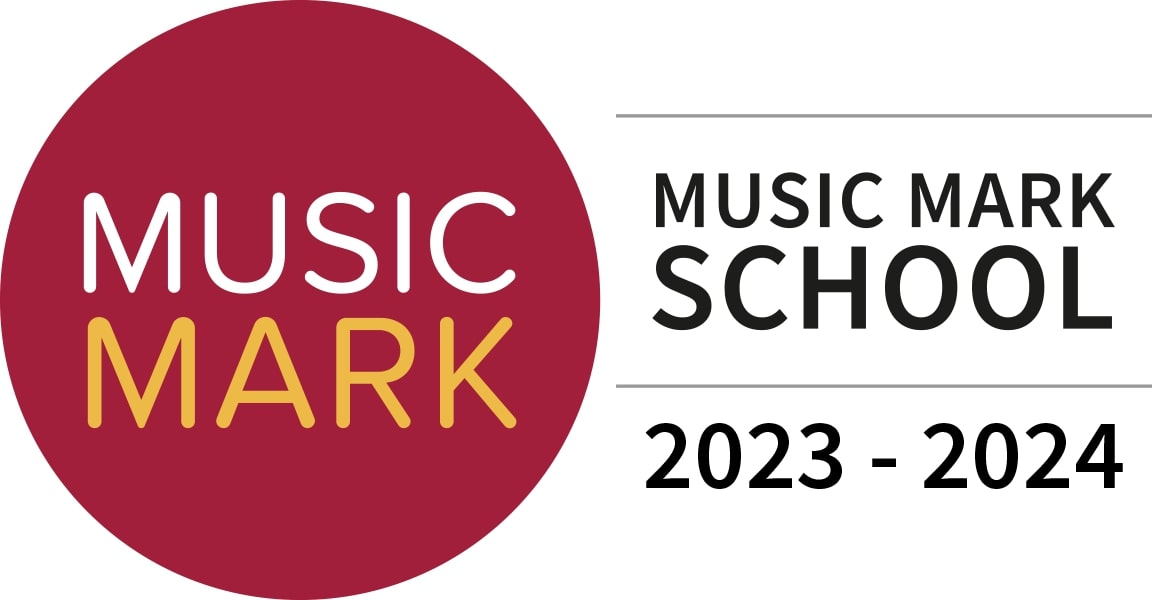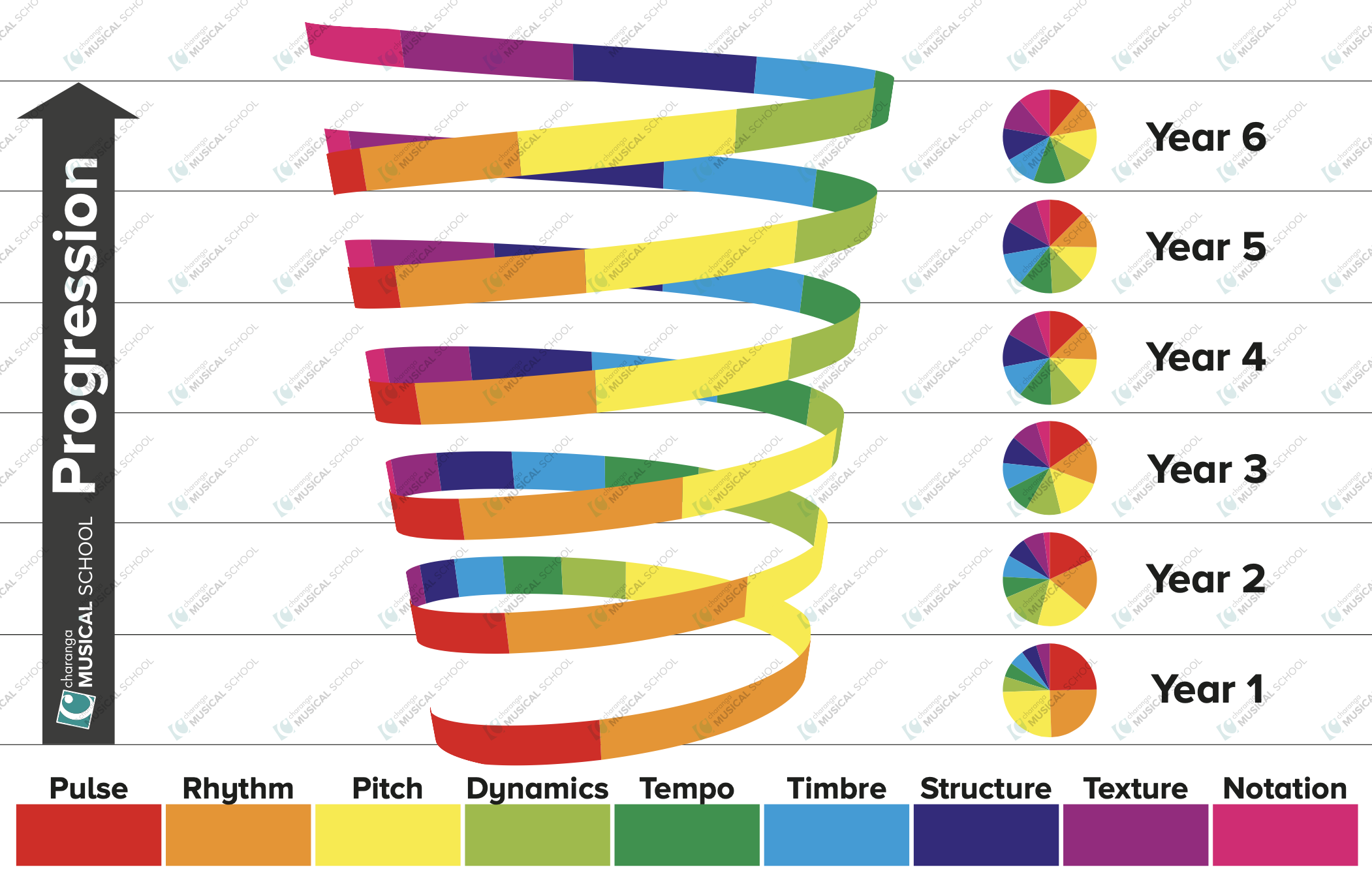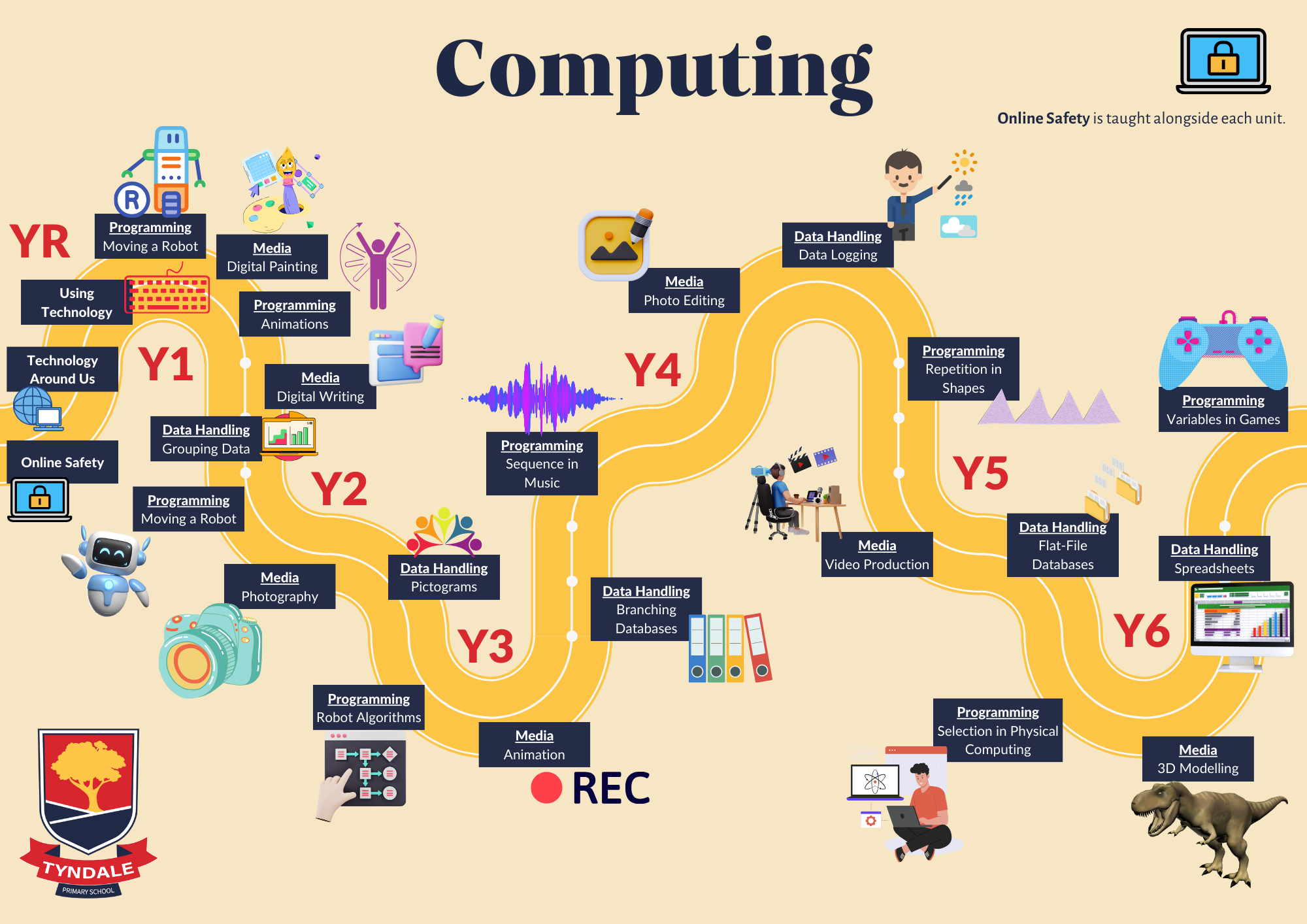Music & Computing
Music
Intent
At Tyndale, our Music Curriculum intends to inspire creativity, self-expression and to encourage our children on their musical journeys as well as giving them opportunities to connect with others. We hope to foster a lifelong love of music by exposing them to diverse musical experiences and igniting a passion for music. By listening and responding to different genres and musical styles, finding their voices as singers, performers and as composers, this will enable them to become more confident and reflective musicians.

Approach
Each Unit of Work comprises of strands of musical learning which correspond with the national curriculum for music:
-
Listening and Appraising
-
Musical Activities
-
Warm-up Games
-
Optional Flexible Games
-
Singing
-
Playing instruments
-
Improvisation
-
Composition
-
3. Performing
In addition to our Music Curriculum, we support all children to learn a range of instruments from years three to six. We offer four programmes (free of charge) of instrumental learning through whole class ensemble teaching. The programmes offer children the opportunity to learn an instrument from four different instrument families.
- Year 3 - Strings: violin, viola, cello and ukulele
- Year 4 - Woodwind: clarinet, Jsax, recorder, fife and flute
- Year 5 - Brass: cornet, trumpet, trombone and french horn
- Year 6 - Drumming: samba and djembe
Children are able to hire (free of charge) an instrument of their choice from years three to six. In addition, we offer instrumental (individual and group) lessons to children. To learn an instrument in a small group or individually, please click here.
Music Skills Progression

Computing
Intent
At our school, we aim for children to master Computing in a way that prepares them for future careers and enables them to use technology effectively in their daily lives, without becoming overly dependent on it. Our curriculum emphasises responsible use of technology, teaching children how their behaviour, words, and actions can impact others both online and offline. Computing is taught through a structured progression, ensuring skills are built on previous learning.
Tyndale pupils will engage with a wide range of technologies to enhance their learning across subjects, fostering creativity and problem-solving. The curriculum not only develops technical proficiency but also promotes thoughtful and purposeful use of technology.
Pupils will learn essential internet safety skills. This includes creating strong passwords, recognising risks around sharing personal information, identifying safe websites, and handling inappropriate content. They will also be taught the importance of respectful online communication and how to avoid and respond to cyberbullying, equipping them to navigate the online world safely and responsibly.
Approach
The core of Computing at Tyndale is computer science, in which children are taught the principles of information and computation, how digital systems work and how to put this knowledge to use through programming. Building on this knowledge and understanding, children are equipped to use information technology to create programs; systems and a range of content. Our computing curriculum also ensures that children become digitally literate - able to use, and express themselves and develop their ideas through, information and communication technology - at a level suitable for the future workplace and as active participants in a digital world.
Computing Whole School Curriculum Map


